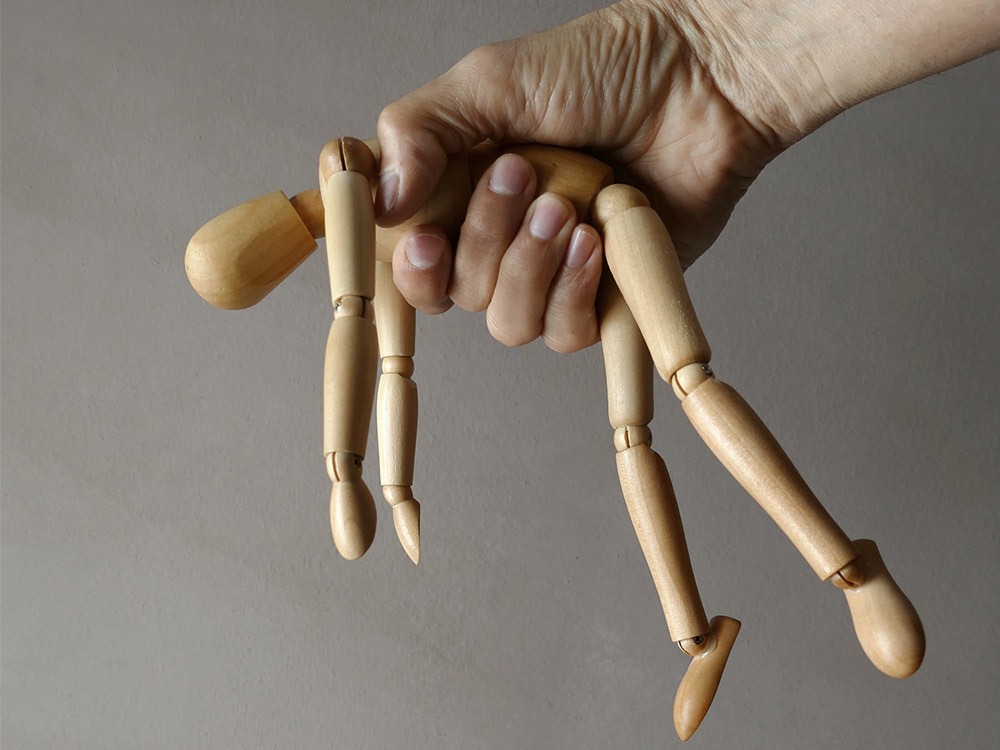
Somewhere in one part of the US or another right now, someone is rethinking their career path. Many working adults in my own community of friends can attest to this. While some left with a fallback plan, others left with none in store because it had reached the point where temporarily relying on their savings while searching for better jobs was a better option than staying in a job that drained the wholeness of who they were. Nonetheless, as media chatter focuses on what Texas A&M professor Anthony Klotz coined as “The Great Resignation,” less attention is paid to what I believe to be two driving forces behind so many leaving their jobs, namely: care and burnout.
Both the needs to prioritize self and communal care and the quest to remedy burnout in the workplace have become more evident in the popular imagination, as a virus ravages millions of lives and work changes very little. Addressing both may bring forth some breakthrough in employee attrition. When the trend first begun, data showed that those more inclined to partake were those in mid-level careers and those particularly in the tech and health fields. However, the Job Openings and Labor Turnover Survey (JOLTS) reports that as of the “last business day” of October 2021, there were still 11 million job openings in various fields and for November reported an increase in quitting rates in “22 states.” What this data reveals about The Great Resignation is that there is seemingly no end in sight.
This might be because work has become intolerable. Employees are being treated as one-dimensional expendable beings with very little care for their three-dimensional complex lives outside of work. As it stands, the North American work culture is invested in the toxic performance of hard work—and collectively, many of us in some way or another seem to be contributing to this toxicity. We go about our days boasting of over 10-hour-plus workdays. As proof, some of us have the markings of exhaustion drawn all over our bodies like scars, in search of both external and internal validation. This is not to say that hard work is not to be valued. In fact, hard work is honorable and must be acknowledged as such. However, there’s nothing endearing about overworking yourself until our body wears out just to prove that you have indeed been putting in the hours. There’s also nothing endearing about running on three hours of sleep everyday all in the name of proving your worth. The quest to prove one’s worth should not come at the expense of one’s health.
While many factors may play a role in people’s decisions to partake in The Great Resignation, there’s something else at play here—the dire need for care both on an individual level and a communal level, and a much-needed serious relief from burnout. When employees are so overwhelmed with workload that they can’t properly look after themselves or their communities, they inevitably burn out, which leads to a need for rest. This speaks to a larger need for collective and individual care.
Without a doubt, the repercussions of the ongoing COVID-19 pandemic have put on display how fleeting our lives are. Therefore, it is not farfetched to say that employees and job seekers are looking not only for fulfillment in their work, but rest from it too. And considering how many hours of our lives we dedicate to our work, why not?
Now, if you think both care and burnout are an individual’s problems and must be tackled as such, think again. For starters, it makes for a tragic story when an organization’s reputation becomes saddled with “overwork culture.” Just as employers research potential employees, so do employees research companies of interest. If organizations and companies seriously want to get to the bottom of why employees are leaving at high rates, they need to start looking at care and burnout from a collective standpoint—and rethink their workplace culture and how it can address both.
Sign up for our free newsletters
Subscribe to NPQ's newsletters to have our top stories delivered directly to your inbox.
By signing up, you agree to our privacy policy and terms of use, and to receive messages from NPQ and our partners.
Employees are the backbone of any organization or company. Simply put, there is no business without them, which is why employers must do what is necessary to cultivate a healthy, thriving space welling with a genuine sense of community for all. For possible solutions, below are five implementable strategies that organizations and companies can borrow from to help reduce high rates of employee resignation.
Five Strategies for Building Worker-Centered Organizations
- Develop a Culture of Care: It’s a truism that culture, as the famed management consultant Peter Drucker once famously put it, eats strategy for breakfast. But far too many organizations continue to think of culture narrowly as the ways in which things are said and done, rather than as a vessel through which advancement for all constituents of an organization or company can progress. This must change.
The World Health Organization (WHO) recognizes burnout as an “occupational phenomenon.” For those wondering what it is, burnout is defined as a “state of emotional, mental and often physical exhaustion brought on by prolonged or repeated stress.” A work environment that fosters a burnout culture can do damage to not only the people that work there but also the organization’s reputation. The truth about addressing “burnout” within the workplace is that it is not just an individual problem. It goes beyond yoga practices and fixing one’s attitude. It comes down to the collective cultural response, and organizations and companies must address it accordingly. - Implement Wellbeing Strategies: Once organizations and companies have acknowledged causes of employee dissatisfaction and high attrition rates, they must move on to countering these causes with cogent, long-lasting solutions. This is where “care” comes in. Care in this instance comes in two parts—self and communal. The notion of care must be incorporated into the culture of organizations and companies in a way that is authentic to the employees. Promoting self-care can look a myriad of ways. For example, it can look like encouraging employees to utilize their allotted time off, without lacing it with guilt of losing time or not getting the job done. Communal care may also take the form of creating a safe space for employees to come together to advocate for themselves and for each other without the fear of being labeled “troublemakers.” Both self and communal care are interconnected—practicing one without the other may unravel any progress and send you back to square one. Nonetheless if you want to find out how to help people, you must go to the source and asking employees directly instead of making assumptions is going to the source. To care is to humanize.
- Acknowledge and Reward Skillsets and Talent: A sure way to lose employees is to fail to acknowledge their skills and talent and to refuse to pay them as deserved. People recognize when they are being taken for granted and it is only a matter of time before they sit with themselves and recognize that they deserve better. To ask for an equitable and livable wage is not doing too much; it is not asking for too much. It is not enough to hand out verbal accolades. We live in the real world where people have major responsibilities outside of work including having to pay bills on a consistent basis. Appreciation for good talent must transcend words and taking actions such as promotion and proper compensation should be prioritized.
- Prioritize Trust-Centered Managerial Training: One of the surest ways to run an employee out of an organization or company is to have an unfit manager managing them. We have all heard the saying that people do not leave jobs, they leave bad managers. Working under the direction of such managers tends to have a significant effect on how employees experience their roles. Managers need training too, and people-skills must be part of that training. One of the core trainings that may be useful is training on how to avoid micromanagement. A micromanaging manager inevitably sucks the enthusiasm out of an employee. Essentially, micromanagers are unable to trust members of their team and to celebrate their wins. They are always tunnel visioned on the shortcomings. Training on trust and flexibility are crucial to management. You should trust the talent you have hired. There’s no way that one should hire well-equipped people and then proceed to micromanage them; their expertise must be trusted and appreciated. Managerial and supervisory training can be a game changer for organizations who want to have company longevity in employee retention.
- Incorporate Remote and Hybrid Working Preferences: The COVID-19 pandemic has forever impacted our working styles. It has allowed for us to see that indeed work as we had always done it was not the only way to do it. Now we know that work can be done in the comfort of our homes, in various spaces and of course in designated office spaces. Allowing employees to have a say in which working style works for the collective moving forward will be beneficial.
As the conversation around The Great Resignation continues to circulate, there seems to be a lot of blame on employees while companies continue to make money and lay off employees. The word “laziness” seems to be a buzzword vis-a-vis the phenomenon of people leaving bad work situations in search of better ones. How tragic that this real thing that’s happening in the lives of real people has been reduced to a blame-game. Instead of blaming their workers, organizations would do well to take a deep look at themselves and partner with them to create sustainable workplaces.
Audre Lorde cracked the code on the importance of rest and self-care when in the epilogue of her essay titled “A Burst of Light” noted:
I had to examine, in my dreams as well as in my immune-function test, the devastating effects of overextension. Overextending myself is not stretching myself. I had to accept how difficult it is to monitor the difference. Necessary for me as cutting down on sugar. Crucial. Physically. Psychically. Caring for myself is not self-indulgence, it is self-preservation, and that is an act of political warfare.
Lorde’s words are clear enough, but if you need any further peeling away, she’s talking about the humanization of our bodies and the dignity that we must be accorded. Or else, there will come an awakening season—a reckoning, such as now—where in this instance employees and job seekers have risen and made their concerns known and felt. This is the self-preservation to which Lorde alludes.
Organizations and companies must understand that they cannot gloss over this predicament. This period is a call for organizations and companies to revise their organizational culture. It is an opportunity to truly see people and humanize organizations and companies to create a fully functioning ecosystem.











